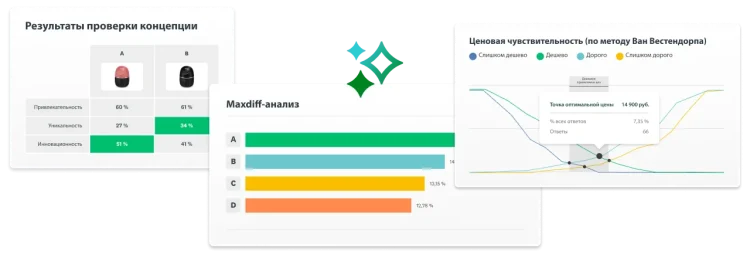
РЕШЕНИЯ ДЛЯ ИССЛЕДОВАНИЯ РЫНКА
Получите аналитику, сгенерированную искусственным интеллектом, с помощью наших универсальных решений для исследования рынка
Принимайте более взвешенные решения с помощью опросов по исследованию рынка, индустрии и покупателей. Создайте бесплатную учетную запись и быстро соберите обратную связь.





Провести исследование рынка с помощью SurveyMonkey легко и быстро
Выберите респондентов
Выберите аудиторию опроса, чтобы получить расчет цены и сроков получения ответов. Мы отправим ваш опрос респондентам из нашей глобальной панели, которые соответствуют указанным вами критериям. Вы получите доступ к более 335 миллионам потребителей и специалистов из 130 стран мира.
Поручите тяжелую работу ИИ
SurveyMonkey поможет ускорить каждый этап вашего исследования благодаря ИИ: от создания опроса до выявления закономерностей и трендов в собранных данных.
Соберите качественные данные и принимайте взвешенные решения
Наша интуитивно понятная платформа позволяет легко собирать и анализировать данные в любом масштабе. Благодаря высоким стандартам качества данных вы можете не беспокоиться о надежности результатов. А пользовательские инструменты отчетности и экспорта позволят быстро делиться наглядными данными.
РЕШЕНИЯ, СОЗДАННЫЕ СПЕЦИАЛИСТАМИ
Изучите свою целевую аудиторию, развивайте свой бренд и опережайте конкурентов
Раскрывайте новые возможности и повышайте конкурентоспособность
Изучите потребительские предпочтения и привычки, а также покупательское поведение.
Оптимизация цены (по методу Ван Вестендорпа)
Определите оптимальный ценовой ориентир и диапазон для своего продукта или услуги.
Принимайте оптимальные решения по продуктам и маркетингу.
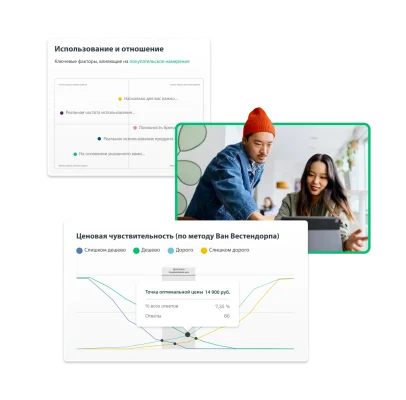
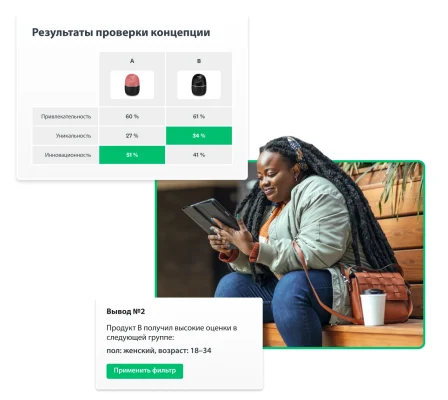
Тестируйте идеи, чтобы быстрее получать одобрение и инвестирование
Тестируйте идеи продуктов и сравнивайте их с промышленными стандартами.
Быстро и легко тестируйте креативные идеи с помощью целевой аудитории и приоритизируйте продукты на ранних стадиях разработки.
Тестируйте различные названия для своего бренда, продукта или услуги.
Выберите наиболее подходящий логотип для своего бренда или продукта.
Получите обратную связь от своей целевой аудитории по поводу дизайна упаковки.
Запускайте успешные маркетинговые кампании и уверенно выходите на рынок
Тестируйте свои маркетинговые и рекламные кампании, прежде чем запускать их.
Тестирование сообщений и заявлений
Получите обратную связь о своих сообщениях, слоганах, рекламных текстах и многом другом.
Узнайте, какой отклик находят ваши видео у целевой аудитории.
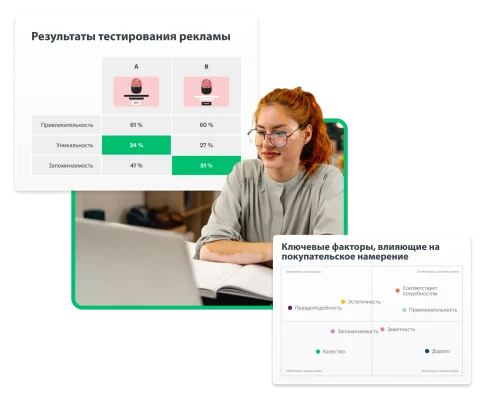

Получите информацию от своей целевой аудитории в течение часа
Получайте обратную связь от более чем 335 миллионов человек из 130 стран мира, используя более 200 уникальных критериев отбора. Мы автоматически чистим данные и удаляем ответы низкого качества, чтобы вы могли с уверенностью принимать решения на основе наиболее актуальной информации.
Получите доступ к ресурсам, которые повысят результативность вашего исследования
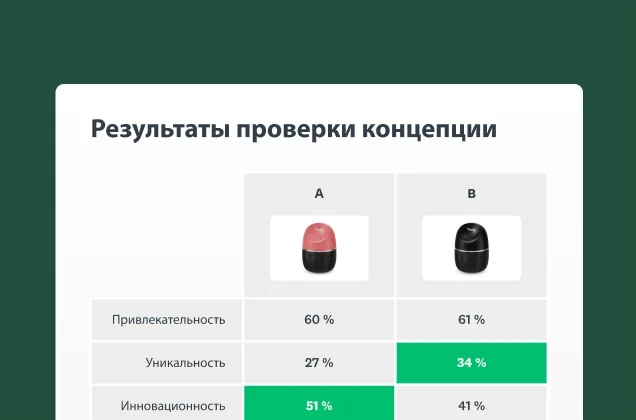
Пять этапов жизненного цикла продукта
Протестируйте продукты перед выходом на рынок с помощью решения SurveyMonkey для проверки концепции.
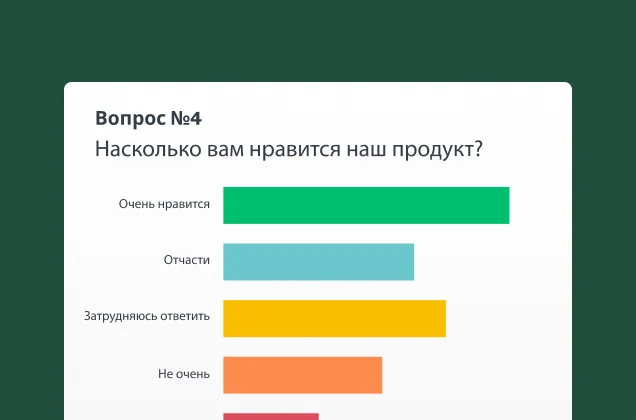
Что происходит после запуска проекта SurveyMonkey Audience
Узнайте, чего ожидать после того, как вы начнете собирать ответы.

Новинки в SurveyMonkey
Узнайте обо всех обновлениях наших продуктов и новейших функциях. Создавайте опросы и формы, чтобы быстро собирать обратную связь и ценные данные.

Протестируйте качество нашей панели опросов Audience
Узнайте, как наша исследовательская команда обеспечивает для вас сбор продуманных и последовательных ответов.
Опередите конкурентов
С уверенностью выходите на рынок с помощью наших решений по исследованию рынка, созданных экспертами.